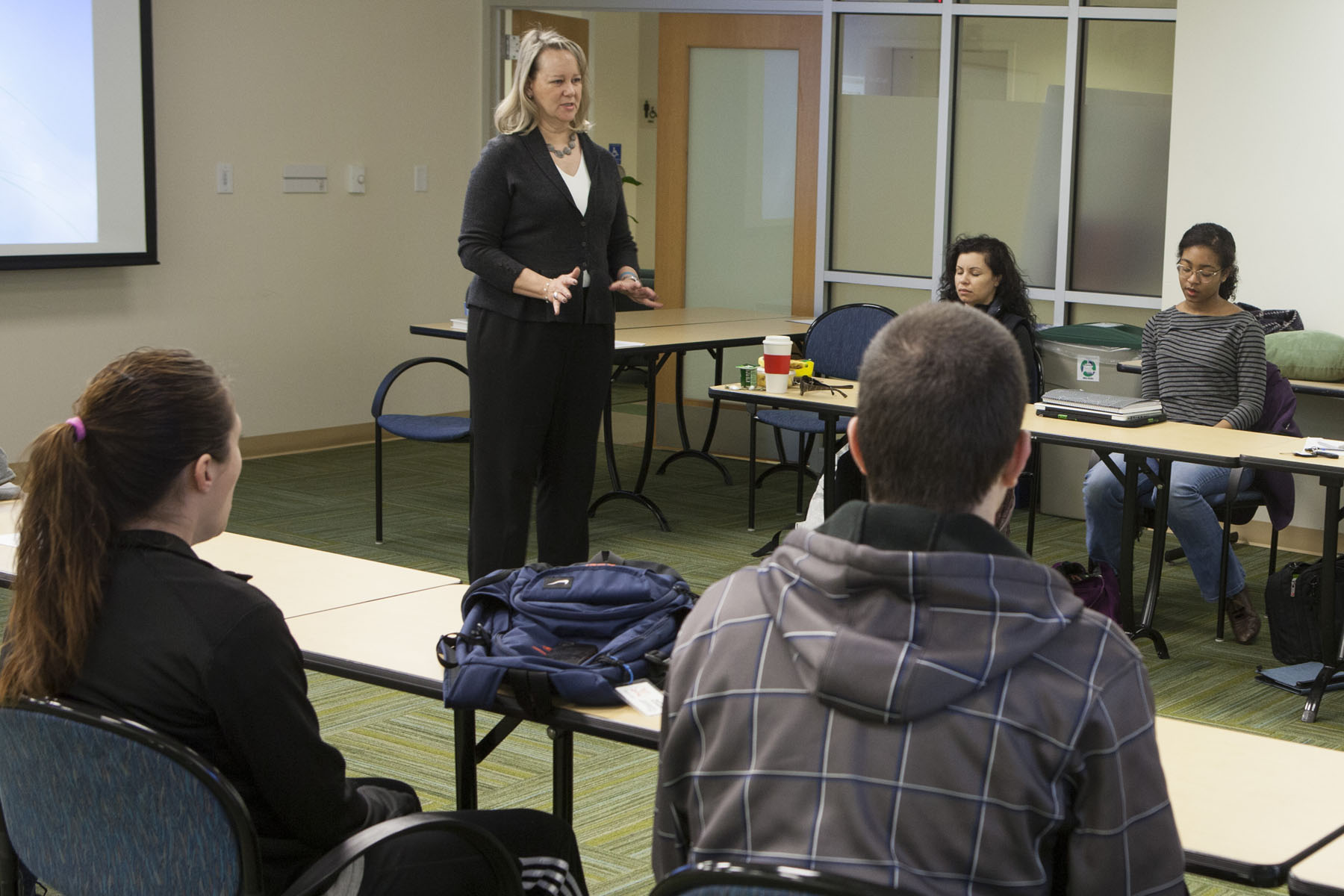While universities teach many things, there are some things that they do not traditionally cover – like how to effectively handle stress and emotions – that are important elements of learning and living.
Filling that gap was one goal of a new January Term course at the University of Virginia: “Mindfulness as a Tool for Learning and Living,” taught by Susanna Williams, an instructor at the Mindfulness Center in the School of Medicine, and Lynne Crotts, a doctoral student at the Curry School of Education, which offered the course.
The course offered an “authentic exploration of unexamined thoughts and behaviors that are obstacles to students’ effectiveness in learning,” as the syllabus explains.
Along with reading and writing assignments, the students learned a wide range of contemplative exercises that cultivate emotional balance, concentration and the ability to cope with stress, Crotts said.
Mindfulness is “paying attention, in the moment, without judgment,” Crotts explained.
Mindfulness meditation practice enables students “to first recognize stress, then de-stress and regulate emotions, then be able to pay attention, and then to develop empathy,” Crotts said. “When you develop empathy, it creates a brain that is more resilient to stress. We introduce them to a variety of topics and a variety of ways to do that, because not everything works for everybody.”
Over the 10 days of the course, students heard from almost a dozen guest speakers who taught the class a variety of contemplative practices, including yoga, nia and t’ai chi.
Guest speaker Dorothe Bach, associate director of U.Va.’s Teaching Resource Center, led a discussion Wednesday of how emotional stress can impair attention and learning.
“I’ve been going through a lot of stress,” said Alan Zhao, a third-year math and statistics major in the College of Arts & Sciences, after the session. “I think everyone does. It’s not easy going to this school,” he said, noting that the average GPA at U.Va. is 3.2. “That’s sad after going through high school with a 4.0. Everyone here was taught that you always need to excel.”
Not achieving a certain grade or goal hurts, Zhao said. “It’s like a gut shot many times.”
Mindfulness meditation is about learning to let go of “these thoughts constantly nagging at you,” he explained. “Come back to your breathing. Keep it simple. Be mindful of all those emotions – good emotions, bad emotions. Learning to disassociate yourself from your emotions – not suppressing emotions, but recognizing that those emotions come and go, and letting them go.”
Through mindfulness practice, Zhao said, one can gradually develop more equanimity, and the ability to accept that some things are out of your control.
The class spent one day last week on how to be more mindful of diversity-related issues, including awareness of “racial micro-aggression” – moments when people say something that unintentionally, and often unnoticed, feels racist or demeaning to someone else, said Arnel Agas, a third-year environmental sciences and pre-dentistry major.
These moments are an outgrowth of embedded attitudes we may not even be conscious of, Zhao said. “We like to think we’re past these racial attitudes, but we’re not.”
Agas and Zhao had nine classmates, mostly third- and fourth-year students from a wide variety of majors and schools, from sociology and psychology to engineering and finance, along with three nontraditional students in the Bachelor of Interdisciplinary Studies program of the School of Continuing and Professional Studies. Their ages ranged from early 20s into the 40s.
There is a growing movement to teach mindfulness and growing student interest in the topic, Williams said. (U.Va.’s new Contemplative Sciences Center, launched in April, will offer a 180-person class this spring on “Buddhist Meditation and Modernity” that will cover mindfulness. There are 50 students on the waitlist.) Interest is being spurred in part by research in recent years that is validating the connections between stress and learning.
“Stress decreases cognitive potential,” Williams said. “So mindfulness is not just a nice thing to do. It actually has very concrete, positive cognitive results,” including sustained attention span, improved listening skills and increased emotional intelligence.
Researchers who studied middle school students who were taught mindfulness found stark gender differences in the effects, Williams said. “The boys improved their ability to focus their attention. Girls increased their self-esteem.” A study of women in college who learned mindfulness found the same benefit – increased self-esteem.
“I think both those results come out of learning self-compassion,” Williams said.
Learning self-compassion was one of the key lessons of the class, Zhao said. “Love yourself – not narcissistically, but genuinely, really caring about your well-being, and then you can start to radiate that to other people as well.”
Media Contact
Article Information
January 10, 2013
/content/j-term-class-mindfulness-helps-students-handle-stress-learn-self-compassion

